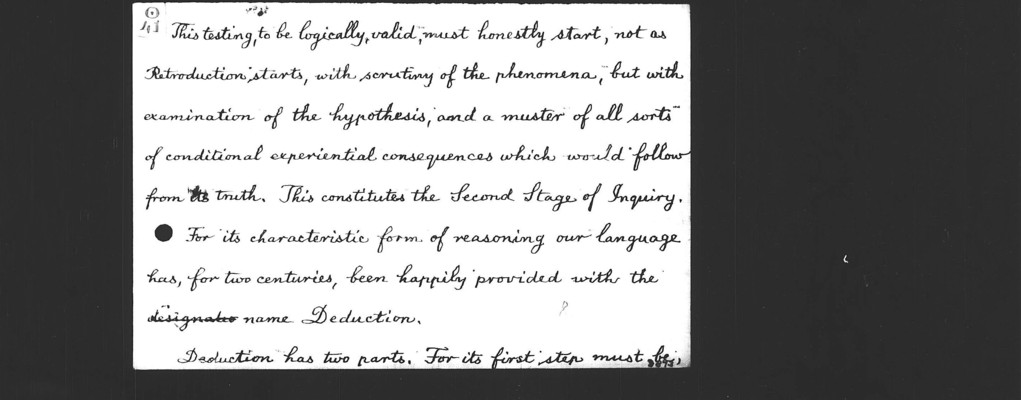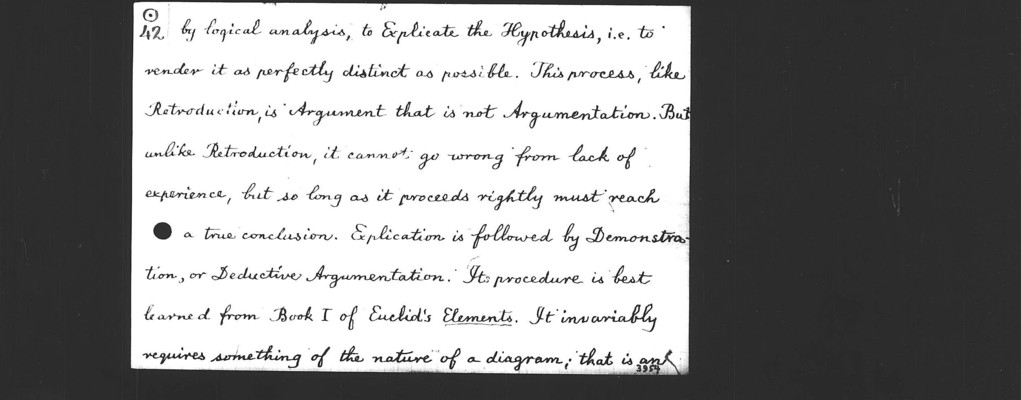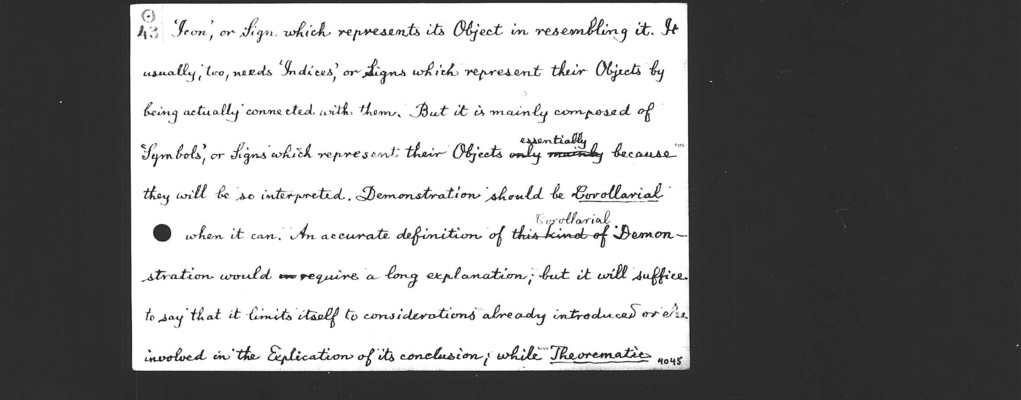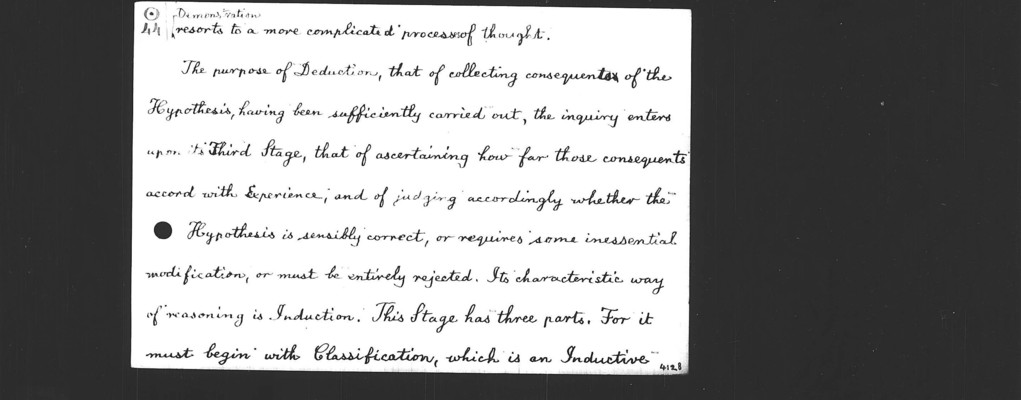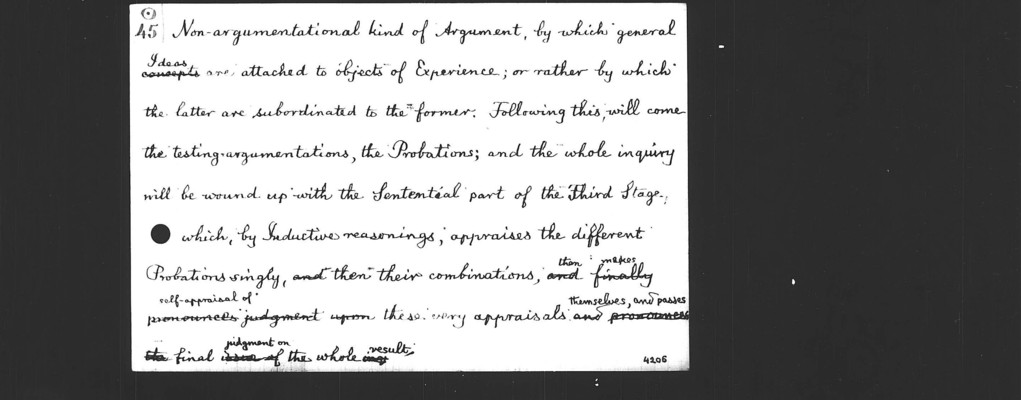Pages
41
O.41
This testing, to be logically valid, must honestly start, not as Retroduction starts, with scrutiny of the phenomena, but with examination of the hypothesis, and a muster of all sorts of conditional experiential consequences which would follow from its truth. This constitutes the Second Stage of Inquiry. For its characteristic form of reasoning our language has, for two centuries, been happily provided with the name Deduction.
Deduction has two parts. For its first step must be,
42
O.42
by logical analysis, to Explicate the Hypothesis, i.e. to render it as perfectly distinct as possible. This process, like Retroduction, is Argument that is not Argumentation. But unlike Retroduction, it cannot go wrong from lack of experience, but so long as it proceeds rightly must reach a true conclusion. Explication is followed by Demonstration, or Deductive Argumentation. Its procedure is best learned from Book I of Euclid's Elements. It invariably requires something of the nature of a diagram; that is an
43
O.43
'Icon,' or Sign which represents its Object in resembling it. It usually, too, needs 'Indices,' or Signs which represent their Objects by being actually connected with them. But it is mainly composed of 'Symbols,' or Signs which represent their Objects essentially because they will be so interpreted. Demonstration should be Corollarial when it can. An accurate definition of Corollarial Demonstration would require a long explanation; but it will suffice to say that it limits itself to considerations already introduced or else involved in the Explication of its conclusion; while Theorematic
44
O.44
Demonstration resorts to a more complicated process of thought.
The purpose of Deduction, that of collecting consequents of the Hypothesis, having been sufficiently carried out, the inquiry enters upon its Third Stage, that of ascertaining how far those consequents accord with Experience, and of judging accordingly whether the Hypothesis is sensibly correct, or requires some inessential modification, or must be entirely rejected. Its characteristic way of reasoning is Induction. This Stage has three parts. For it must begin with Classification, which is an Inductive
45
O.45
Non-argumentational kind of Argument, by which general Ideas are attached to objects of Experience; or rather by which the latter are subordinated to the former. Following this will come the testing-argumentations, the Probations; and the whole inquiry will be wound up with the Sentential part of the Third Stage, which, by Inductive reasonings, appraises the different Probations singly, then their combinations, then makes self-appraisal of these very appraisals themselves, and passes final judgment on the whole result.
